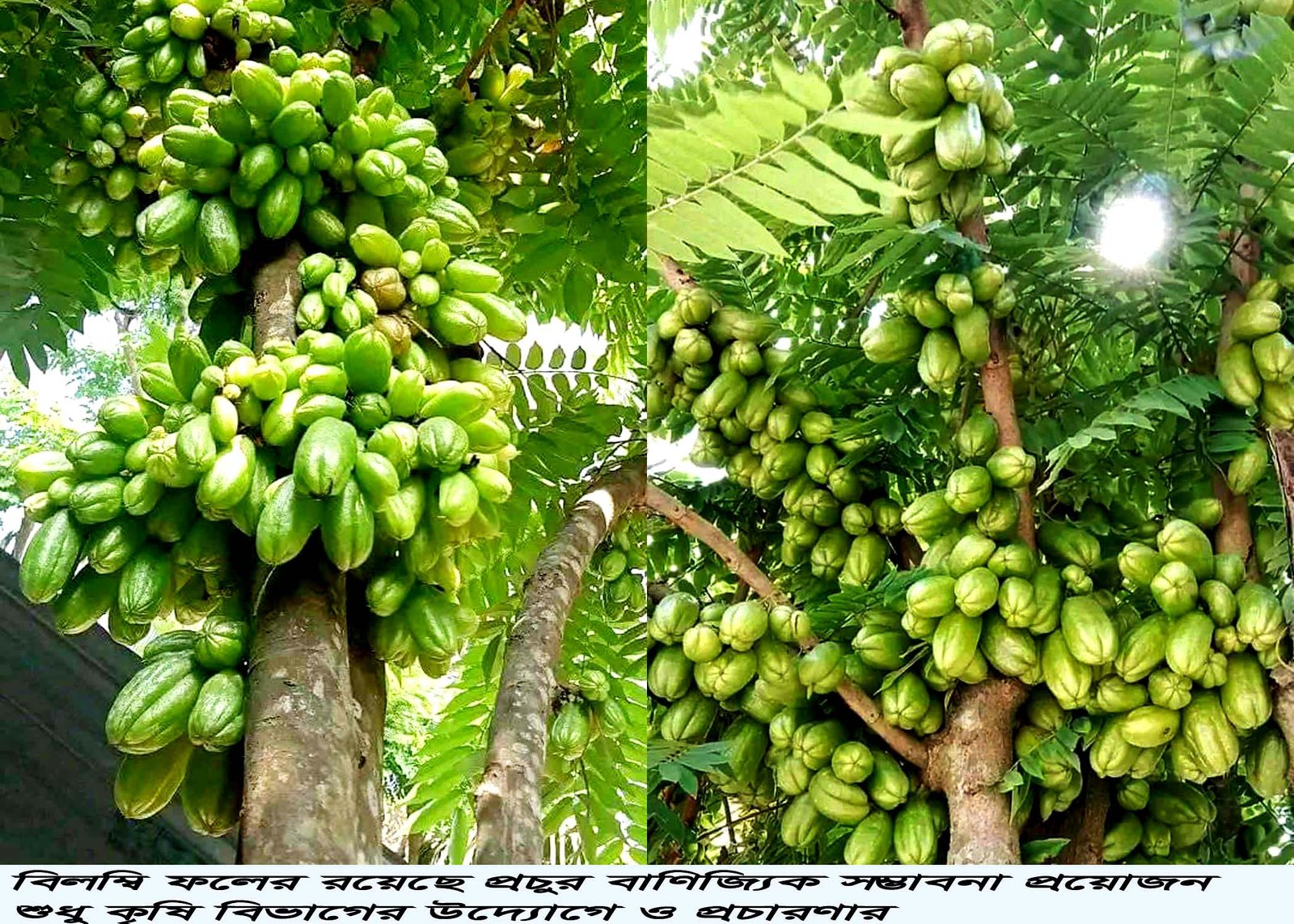Bright prospect of Bilimbi fruit farming in Nabinagar

The farming prospect of Bilimbi, a unique and native sour fruit in the country, is becoming brighter in Nabinagar of Chuadanga as farmers are growing the fruit commercially.
Bilimbi looks somewhat like a long, green tomato. When ripe, it turns yellow. While it is sour, it is not as intensely tangy as tamarind. It is often used in fish dishes, lentils, or made into pickles.
Bilimbi trees can grow up to 12–15 feet tall, bearing light green, slender leaves. A single tree can bear fruit continuously for 15 to 20 years. Each branch holds a large number of fruits. In the rainy season, a single tree can yield up to 200 kg of fruit, and in winter around 100 kg. However, the plant is sensitive to waterlogging and may die if water collects around its base. The trees are grown from seeds and start bearing fruit within three years. Once picked, the fruit begins to rot after three days. Pruning the branches increases the yield.
Bilimbi is available throughout the year, and currently sells for 50–60 taka per kg in local markets.
The history of bilimbi in Nabinagar goes back almost a century. It is believed that Yakub Ali Chowdhury, the local postmaster at the time, introduced the bilimbi plant to his garden. The sapling was brought by Narendra Chandra Modi, a court peon at the time. Now, bilimbi trees can be found in almost every household in the area. Interestingly, many locals have taken bilimbi saplings to Europe, America, and the Middle East as a keepsake, though the fruit's name abroad remains unclear.
Locals believe this unique fruit, rich in nutritional value and health benefits, should receive attention from the agricultural department for scientific study and potential commercial farming. Given its popularity and unique flavour, it has great potential as both a cooking ingredient and for pickling on a commercial scale.
Regular consumption of bilimbi may help manage high blood pressure and diabetes. Bilimbi flowers boiled in water are used to treat colds and coughs. The leaves can be used to treat insect or snake bites. A paste made from the leaves can help relieve skin itching. In the Philippines, bilimbi leaves are used to treat swelling, skin cracks, mumps, and arthritis.
According to Upazila Agriculture Officer, Jahangir Alam Liton, bilimbi is a juicy, sour fruit that grows well in warm climates. It is rich in vitamin C, which boosts immunity and supports skin and dental health. It also contains antioxidants that help fight free radicals, aiding disease prevention. Bilimbi supports digestion, purifies blood, and helps relieve fever and inflammation. Low in calories and high in nutrients, it is suitable for maintaining a healthy weight.
As demand and awareness grow, this once underappreciated fruit is gaining popularity in local markets — both in price and demand. A single tree in a household is often enough to meet a family’s needs and even share with neighbours.



